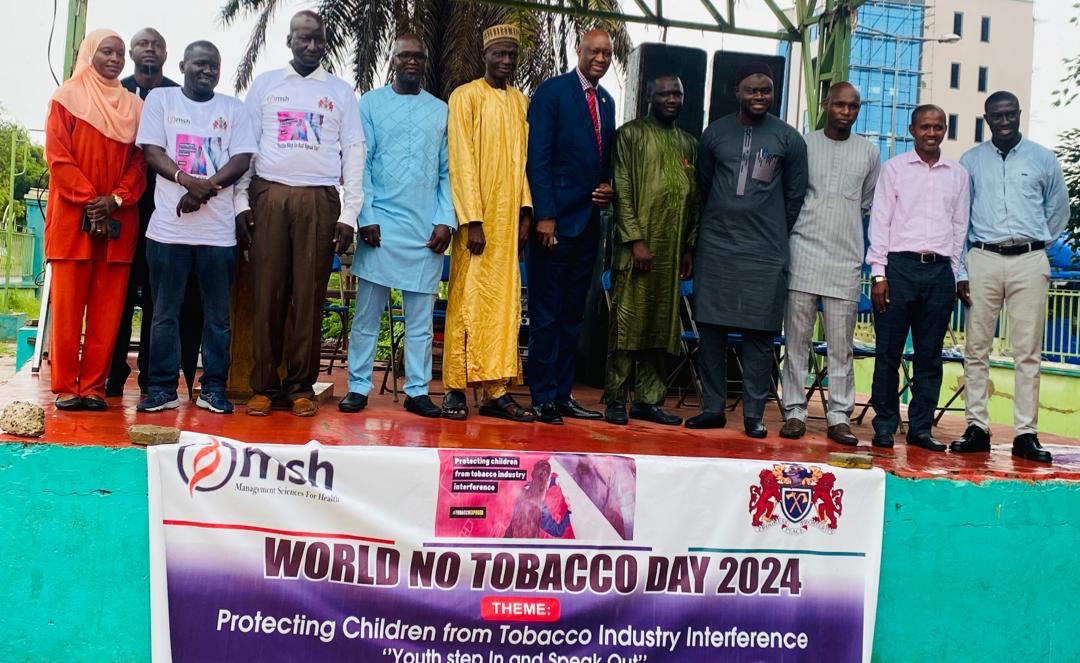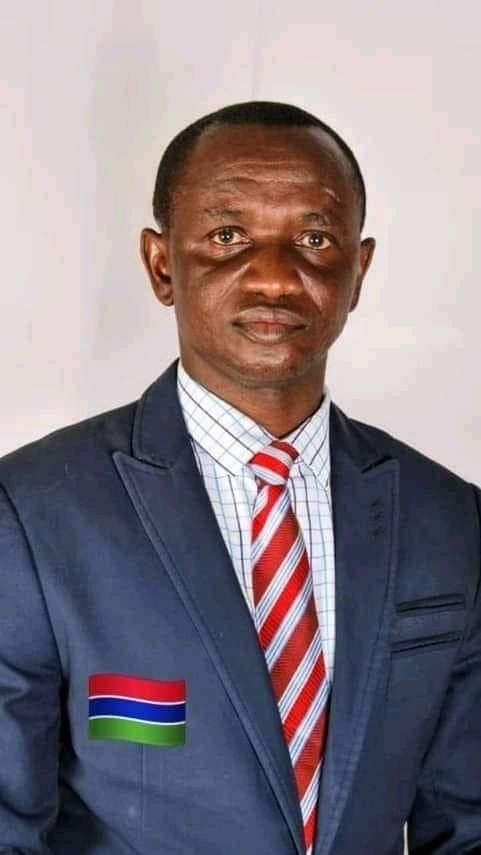By: Binta Jaiteh
The Ministry of Health in collaboration with the World Health Organization (WHO) on Tuesday presented the World No-Tobacco Day award to the Commissioner General of the Gambia Revenue Authority(GRA) Yankuba Darboe as part of the commemorative events of the World No-Tobacco Day.The theme for this year’s commemoration is Protecting Children from Tobacco Industry Interference, Youth Step in and Speak Out.
Speaking during the presentation held at the YouthMonument at Westfield, CG Darboe lamented that tobacco use can negatively affect social interactions and relationships.
The GRA boss stated that one study found that smokers burn through an average of $1.4 million in personal costs, including spending on cigarettes, medical costs and lower wages brought on by smoking and exposure to secondhand smoke. He pointed out that tobacco use affects the health and productivity of workers, making them prone to missed days at work.
“Tobacco use contributes to poverty by diverting household spending from basic needs such as food and shelter to tobacco and it burdens the global economy with an estimated US$ 1.4 trillion in healthcare costs for treating the diseases caused by tobacco and lost human capital from tobacco-attributable sickness and death. About 22 billion tonnes of water are used in tobacco production globally, approximately 3.5 timesthe water volume of Lake Chad,” he bemoaned.
The GRA boss pointed out that the production and consumption of tobacco also contribute to global warming, releasing 80 million tonnes of carbon dioxide into the environment.
“Each year, approximately 200,000 hectares of land are cleared for tobacco agriculture and curing each year, which is almost half the entire land area of Cape Verde,” he added.
He acknowledged that collaborative effort resulted in the introduction of the Tobacco Control Levy, which was endorsed by the government in 2023.
“Together, we have proven that through collaboration, determination, and a shared vision, we can create a healthier future for generations to come,” he further acknowledged.
WHO representative Dr. Jane Wangechi Maina said World No-Tobacco Day, commemorated each year on 31 May, is a day set aside by Member States of the WHO since 1988 to awaken global attention to the harmful consequences of tobacco use.
She said this year marks the 36th edition of this global solidarity and crusade against tobacco.
“The world has reasons for devoting so much attention to the tobacco epidemic, which is one of the biggest public health threats the world has ever faced, killing over 8 million people a year around the world,” she emphasized.
According to her, more than seven million of those deaths are the result of direct tobacco use while around 1.3 million are the result of non-smokers being exposed to second-hand smoke.
“Due to our efforts, 45 countries in the African region have ratified the WHO Framework Convention on Tobacco Control, WHO FCTC, and 22 have ratified the protocol to eliminate illicit trade in tobacco products,” she stated.
The WHO representative explained that 22 countries have adopted new tobacco control laws that have enabled them to implement the provisions of the tobacco control framework effectively. These national legislations, she went on, have resulted in theaccelerated implementation of the WHO FCTC in more than 35 countries and contributed significantly to the downward trends in the prevalence of tobacco use in the region.
The Director of Health Services, Dr. Momodou T. Nyassi, representing the Minister of Health, said World No-Tobacco Day is a day of reflection for everyone because no one is spared from the negative consequences of tobacco use.
He stressed that tobacco is destructive to health, the environment, economies and livelihoods, in general.
He added:“We thank the World Health Organization for consistently generating the science to support these claims. We are told that tobacco kills over eight million people, globally each year and even those who manufacture this lethal product agree with these claims, but they are into this
game for the sake of making money.”
He explained that the health ministry, with technical guidance and support from the WHO and in collaboration with other sectors of Government and partners, has developed a tobacco control policy and strategic plan, a comprehensive tobacco control law and regulations to protect the present and future population from the hazards of tobacco.
“How are we as a country affected by this global threat and what is fuelling this threat in the country,” he rhetorically asked.
Dr. Nyassi expressed concern that nearly 16% of the Gambia’s population aged 15 years and above smoke cigarettes and a further 8. 4% of the country’s youth aged 12 to 20 use Shisha. He described Shisha as another deadly form of tobacco “now getting out of hand”.
“Even more worrying is the fact that about 11% of our young children (13-15 years) use any form of tobacco product; 9.2% of them smoke tobacco and about 7% of them smoke cigarettes,” he bemoaned.





